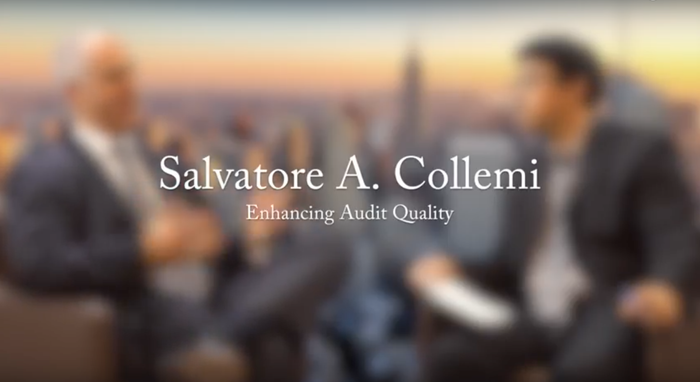Is Your Firm at Risk?
Find out with a complimentary risk assessment review
Welcome To Collemi Consulting
& Advisory Services®
Collemi Consulting & Advisory Services, LLC® strives to promote and enhance audit quality to U.S. and international public accounting firms, private sector, litigation attorneys, valuation experts, standard-setters, regulators and other organizations that influence the public accounting profession.
Who We Are
Managing Member and Founder Salvatore A. Collemi, CPA has served as a former regulator, standard-setter, external auditor and technical partner at leading institutions such as the SEC, AICPA and several international public accounting firms. He has a keen understanding into the mindset of both
regulators and standard-setters.
WITH COLLEMI CONSULTING, YOU HAVE A TRUSTED
AND COST EFFICIENT PARTNER
Our Services
Mr. Collemi’s vast experience in the public accounting profession is key to providing high-level strategic and technical guidance to our clients when it matters the most – whether to retain their top attest clients, seeking to sell or buy a CPA firm, comply with standard-setters and regulators. With extensive industry experience and a solid network of contacts, we provide a full range of technical services, from U.S. & International accounting & auditing consultations to AICPA Peer Review & PCAOB inspection preparation to customized continuing professional education (CPE) training. Collemi Consulting is also widely known as a “go-to” source for emergency solutions, including lawsuits and unfavorable AICPA Peer Reviews and PCAOB Inspections.
Audit Expertise
Technical Expertise When You Need It the Most
Knowledge Blog



Are you ready to enhance the quality of your practice?
Contact Salvatore A. Collemi, CPA at your earliest convenience for a free initial one-hour consultation. With Mr. Collemi’s extensive experience in the public accounting profession, he understands the impact of U.S. and International financial reporting, internal control systems and regulatory compliance acumen as they affect both privately-held and publicly-traded companies. In addition, his diverse senior leadership roles will provide valuable insight on a wide range of strategic, financial, regulatory compliance and global business considerations.








